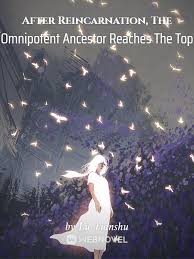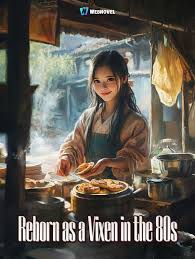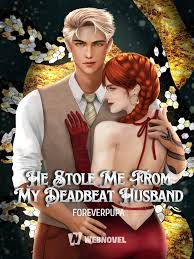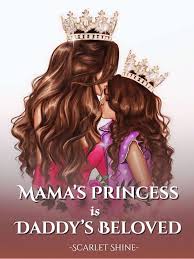The Story in 3 Sentences
Ye Xiao awakens in a merged literary universe as the long-lost true heiress of the Ye family, only to discover that her entire bloodline is scripted as villains doomed to tragic fates across four interconnected romance novels.
Armed with a golden finger that lets her alter the plot by changing just one word at a time, she rewrites humiliating clichés into absurdly hilarious or empowering moments, dismantling the original narratives piece by piece.
As her edits ripple through the story, her once-doomed brothers and relatives break free from their predetermined roles, and the family transforms from antagonists into a fiercely protective unit that adores her.
Why It Stands Out
1. One Word to Rule Them All
The novel’s core mechanic—editing fate by tweaking a single word—is both brilliantly simple and endlessly inventive. A shift from “like you” to “like your money” flips romantic sincerity into satire, while “bounced” instead of “fell” turns melodrama into Olympic-grade physical comedy. This device isn’t just a gimmick; it’s a scalpel that dissects the absurdity of romance tropes with surgical precision.
2. The Family That Eavesdrops Together Stays Together
A hidden layer of charm lies in the fact that Ye Xiao’s inner monologue—full of snark, melon-eating glee, and unfiltered commentary—is secretly audible to her family members, though she remains blissfully unaware. This creates a running undercurrent of dramatic irony where her sarcastic thoughts are misinterpreted as profound wisdom or heartfelt concern, bonding the family through shared secrets and laughter.
3. Villains Deserve Happy Endings Too
Rather than centering the so-called “main leads” of the original books, the story flips the script by giving depth, agency, and redemption to the supporting cast. The Ye family members aren’t just saved by Ye Xiao—they actively choose new paths, confront their flaws, and redefine what it means to be a protagonist in a world obsessed with prewritten destinies.
Characters That Leave a Mark
There’s Ye Mingcheng – the eldest brother originally fated to be driven to suicide by a deceitful fiancée and her genius son, but who regains his dignity and peace once Ye Xiao alters the narrative to expose the truth and strip away the emotional manipulation.
You’ll meet Ye Bingtong, who in the original plot was a jealous, scheming fake sister but becomes a complex figure whose misguided actions stem from deep insecurity, eventually finding her own identity outside of rivalry thanks to Ye Xiao’s interventions and the family’s unexpected compassion.
And Gu Yan? They’re the one who quietly stands by Ye Xiao through chaos and comedy alike, his dry wit and steadfast loyalty forming the emotional anchor of the story; though romance simmers slowly, his presence ensures she’s never alone in rewriting fate.
The Flaws Fans Debate
Some readers feel the romantic subplot between Ye Xiao and Gu Yan develops too slowly, with emotional payoff delayed until the very final chapters, making the buildup feel undernourished compared to the vibrant family dynamics.
A portion of the audience notes that while the word-editing gimmick is fresh early on, it occasionally strains believability in later arcs when complex systemic issues are resolved with overly simplistic linguistic tweaks.
Critics point out that the original “main leads” of the embedded novels—like Chen Yueyue and Qin Mobei—are portrayed so one-dimensionally as villains that their lack of redemption can feel unbalanced, especially when every Ye family member gets a second chance.
Must-Experience Arcs
Ch. 4–12: The Fiancée’s Fall – Ye Xiao confronts the eldest brother’s toxic engagement, using her power to expose the fiancée’s pregnancy with another man; the edited confession transforms a tragic sacrifice into a public reckoning that liberates Ye Mingcheng.
Ch. 78–92: The Actress Bounces – When the second brother’s career is sabotaged by a scheming actress and her powerful patron, Ye Xiao changes “fell” to “bounced,” turning a cliché swoon into a viral spectacle that dismantles the antagonist’s credibility and saves her brother’s reputation through sheer absurdity.
Ch. 220–246: No More Leads, Only Lives – In the final arc, Ye Xiao exhausts her word quota to erase the very concept of “main characters” from the world’s narrative fabric, declaring that everyone deserves autonomy; this culminates in a quiet, hopeful epilogue where love, family, and self-determination replace fate.
Killer Quotes
“In this world, there will no longer be male or female leads, no so-called plot to bind one’s life. Everyone shall henceforth be the main character of their own.”
“I’m sorry. I really did mean it.”
“Start by kneeling and repenting properly!”
Cultural Impact
Readers frequently quote the “bounced into his arms” scene as a meme symbolizing the rejection of passive female tropes in romance fiction.
The phrase “eat melon” (slang for enjoying gossip) became a fan-favorite reference, with communities using it to describe Ye Xiao’s gleeful spectatorship of unfolding drama.
The novel sparked discussions across webnovel forums about narrative agency, with fans praising its meta-commentary on how side characters in romance stories are often sacrificed for the leads’ emotional arcs.
Final Verdict
Start Here If You Want:
A hilarious, trope-smashing comedy where linguistic precision becomes a weapon against destiny.
A found-family story where villains heal, grow, and choose each other over scripts.
A light-hearted yet sharp critique of romance novel conventions, wrapped in absurdity and warmth.
Study If You Love:
Meta-narrative structures that interrogate authorship, fate, and character autonomy in serialized fiction.
The intersection of comedy and catharsis in transmigration stories that prioritize ensemble casts over solo heroism.
Subtle explorations of how language shapes reality, both in fiction and in reader expectations.
Avoid If You Prefer:
Fast-burn romance with constant lead interaction; the central love story is slow and secondary to family dynamics.
Traditional power fantasies where the MC dominates through strength; here, change comes through wit, words, and empathy.
Stories with clear-cut heroes and villains; this novel thrives in moral gray zones and redemption arcs that require patience.





